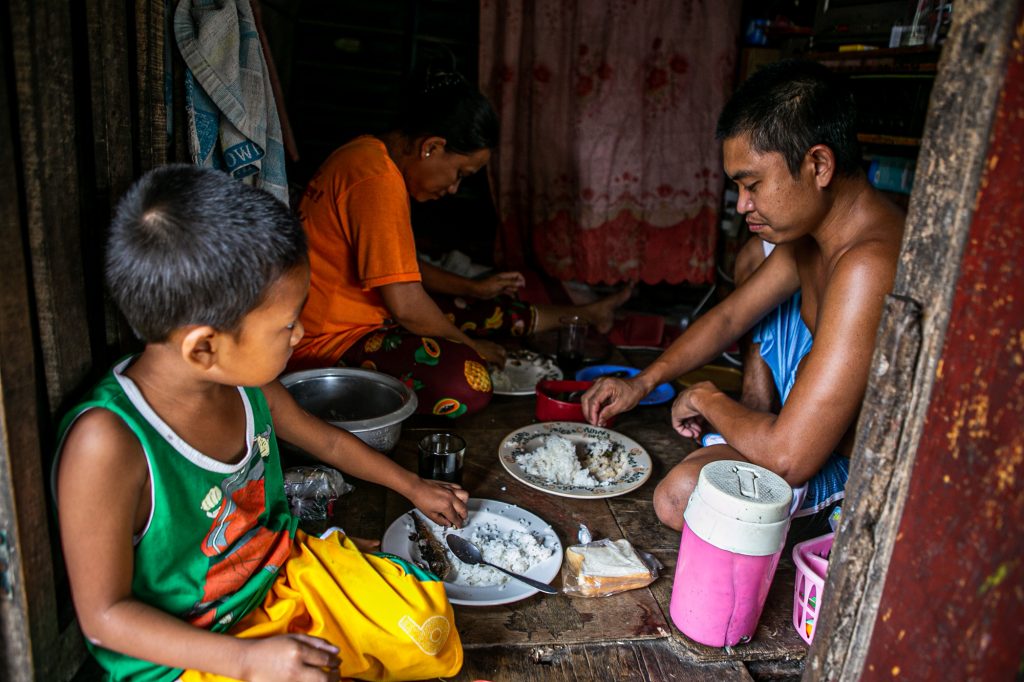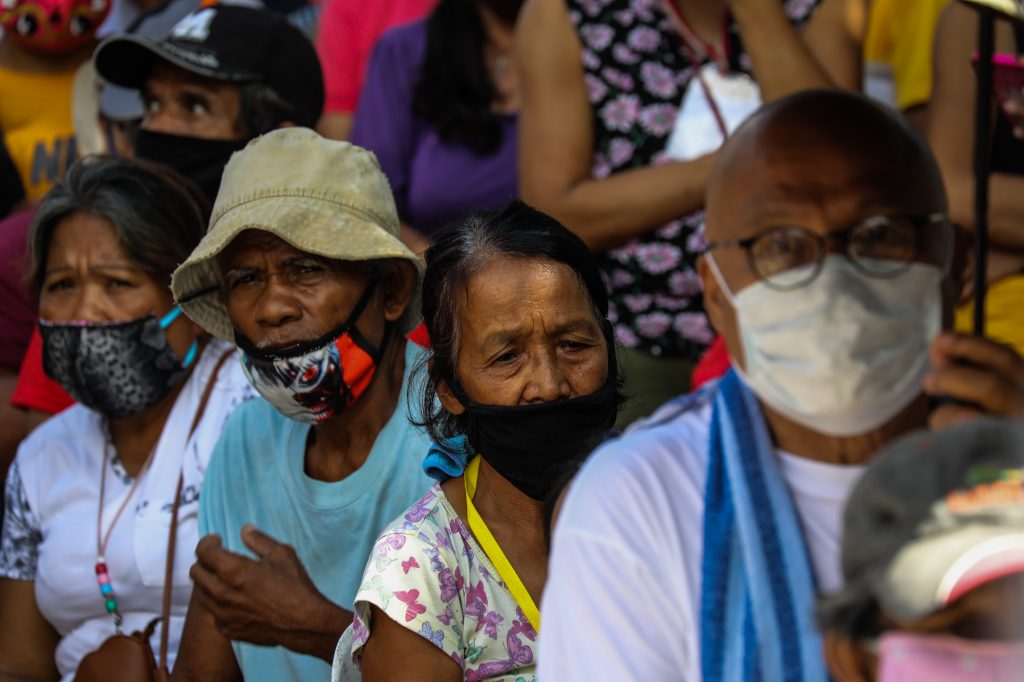
The social action arm of the Philippine Catholic Church has expressed support for calls to pass laws that will “synergize” all efforts to address hunger and poverty in the country.
“We already have a lot of laws on hunger, but the problem is the synergy,” said Father Tony Labiao, executive secretary of Caritas Philippines.
The priest stressed the need to “synchronize efforts from the local to the national level” to ensure that the goal of “zero hunger” will be attained.
Father Labiao assured the government of the Church’s “support and commitment” in addressing the problem of poverty and hunger in the country.
“Hunger is a situation that is getting worse and it is everyone’s problem already,” said the priest. “Everyone should be organized and be involved in fighting this,” he told LiCAS.news.
The priest made the assurance as the government intensified its campaign this week to implement its National Food Policy.
Cabinet Secretary Karlo Nograles, head of the Inter-Agency Task Force on Zero Hunger, recognized the “willingness” of the Catholic Church to support the government program.
“There is a need to align all our efforts and implement a targeted approach so that everyone who needs help will be given help,” said Nograles in an online media briefing on December 11.
“What we don’t want to happen is that sometimes we reach out together in one place and there are others who are left behind,” he said.
Nograles said the aim of the series of consultations with stakeholders in recent weeks is to come up with “comprehensive and doable sets of solutions.”
“We also wanted all stakeholders to actively participate in enforcing the National Food Policy based on their own inputs,” he said.
Nograles maintained that fighting hunger “is not only a whole-nation approach” but a “whole-of-society approach” where everyone plays a critical role.
President Rodrigo Duterte created the interagency body to address hunger through an executive order on Jan. 10, 2020.

Need for legislation
A group of anti-hunger advocates, meanwhile, called on the president to hasten the passage of laws that will help the government achieve its 2030 Sustainable Development Goals on zero hunger.
“We earnestly request the Duterte administration to certify as urgent the Right to Adequate Food Framework Bill, or the Zero Hunger Bill, now pending in the House and the Senate,” said Aurea Miclat-Teves, president and convener of National Food Coalition.
In a virtual press conference, the anti-hunger advocate maintained that food and nutrition “is not yet explicitly recognized in the Philippine Constitution.”
“We want to help the nation’s leaders push the right policies regarding [hunger and poverty],” she said, adding that “actions must be taken” to implement the government’s National Food Policy.
Miclat-Teves said that even as the government has established the task force, “there is a need for legislation to make the national food policy sustainable.”
She said a law upholding the right to food and nutrition or RTFN can compel the government “to provide adequate food for all Filipinos at all times.”
The coalition also stressed the need to pass a new agrarian reform law that will respect the rights of indigenous peoples while ensuring the modernization of the country’s agriculture and fisheries sectors.
According to the coalition, the rights of indigenous peoples are “disrespected as big mining companies violate ancestral domains and destroy tribal lands, resulting in the dislocation of peoples.”
“The twin goals of achieving equity and productivity have been sidelined, leaving our marginalized sectors, especially our indigenous peoples, farmers and fisherfolk, still hungry and impoverished,” said Miclat-Teves.
She also pushed for proper disaster risk reduction programs, saying that “poverty is magnified or exacerbated by disasters.”
“This is often tragically dramatized by the slow flow of emergency aid to the poor who suffer the most from any disaster,” the coalition leader said.
Citing a report from Philippine Statistics Authority, the coalition of anti-hunger advocates said the estimated poverty rate in the country was at 16.6 percent in 2018.
“Hunger is one of the critical problems stemming from poverty in the Philippines, with 64 percent of the population suffering from chronic food insecurity,” said the coalition.
A Social Weather Stations (SWS) survey conducted in September noted that more than seven million Filipino households have experienced involuntary hunger at least once from June to August this year.
“The SWS survey showed that families who experienced hunger due to lack of food reached a new record-high of 30.7 percent. This figure surpassed the previous peak of 23.8 percent in March 2012,” added the coalition.
The anti-hunger advocates identified the “deteriorating food security” in Mindanao region, which has endured four decades of armed conflict that resulted in more than 40 percent of families displaced between 2000 and 2010.
Natural disasters like typhoons, at a rate of about 20 per year, also compounded the problems of hunger and poverty in the country.
Source: Licas Philippines
0 Comments